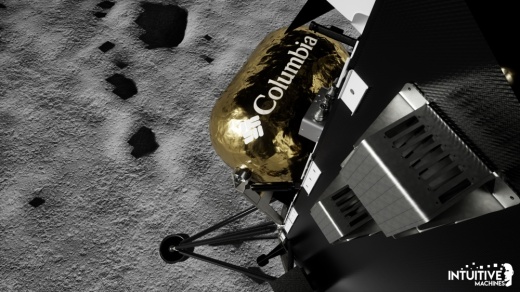Selected by NASA to build and launch its Nova-C lunar lander, Intuitive Machines will embark on a mission in 2022 to return to the moon’s surface, the first time the United States has done so in 50 years. The company will become the first-ever private company to travel to the moon—cementing Houston as a powerful player in the rapidly expanding aerospace industry, Community Impact Newspaper previously reported.
In laboratory simulations leading up to the 2022 launch, Intuitive Machines researchers determined the gold metallic foil of Columbia’s Omni-Heat Infinity will provide insulation-related benefits for the lunar lander. The insulation will help to equip the lander against the extreme temperatures on the moon, per the release.
“Inspired by the reflective technology used by NASA, our Omni-Heat Infinity technology has been tested in many challenging environments on Earth, but the Moon represents a first for us,” said Joe Boyle, Columbia brand president, in the release. “We’re looking forward to collaborating with Intuitive Machines on their upcoming mission as we continue to push our technology to new heights.”
The sportswear company “embodies the spirit of exploration,” IM President and CEO Steve Altemus said in the release.
IM’s Nova-C lunar lander will launch on a SpaceX Falcon 9 rocket in the first quarter of 2022, per the release. It will deliver 130 kilograms of NASA and commercial payloads to the moon, powered by a 3D-printed liquid oxygen and methane engine.
Guidance navigation and control, made in-house at IM’s Bay Area Boulevard headquarters, will bring the lander to the lunar surface by utilizing the world’s first commercially available lunar distance communication network. Three teams of 12 mission controllers will command and control Nova-C 24/7 during the 21-day mission, becoming the first Houston-commanded lunar landing since Apollo 17 in 1972, per the release.
“Creating and defining the lunar economy requires making the moon available for everyone,” Altemus said in the release.





